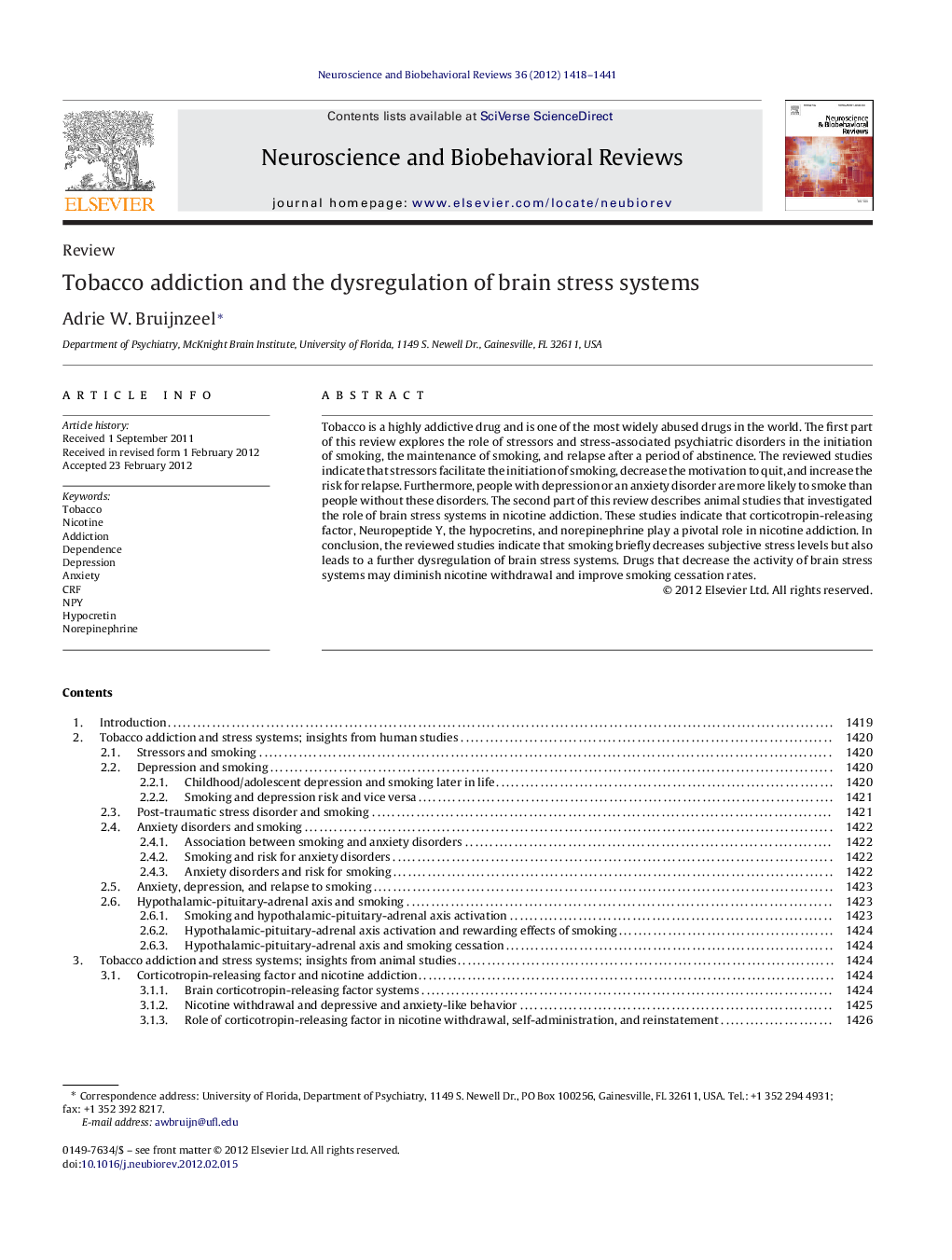| کد مقاله | کد نشریه | سال انتشار | مقاله انگلیسی | نسخه تمام متن |
|---|---|---|---|---|
| 937520 | 924505 | 2012 | 24 صفحه PDF | دانلود رایگان |

Tobacco is a highly addictive drug and is one of the most widely abused drugs in the world. The first part of this review explores the role of stressors and stress-associated psychiatric disorders in the initiation of smoking, the maintenance of smoking, and relapse after a period of abstinence. The reviewed studies indicate that stressors facilitate the initiation of smoking, decrease the motivation to quit, and increase the risk for relapse. Furthermore, people with depression or an anxiety disorder are more likely to smoke than people without these disorders. The second part of this review describes animal studies that investigated the role of brain stress systems in nicotine addiction. These studies indicate that corticotropin-releasing factor, Neuropeptide Y, the hypocretins, and norepinephrine play a pivotal role in nicotine addiction. In conclusion, the reviewed studies indicate that smoking briefly decreases subjective stress levels but also leads to a further dysregulation of brain stress systems. Drugs that decrease the activity of brain stress systems may diminish nicotine withdrawal and improve smoking cessation rates.
► Stressors increase the number of cigarettes smoked and increase the risk for relapse.
► Depression increases the risk for smoking and vice versa.
► Smoking increases the risk for developing an anxiety disorder.
► A hyperactivity of brain stress systems plays a role in nicotine withdrawal in rats.
► Drugs that decrease the activity of brain stress systems may help people quit smoking.
Journal: Neuroscience & Biobehavioral Reviews - Volume 36, Issue 5, May 2012, Pages 1418–1441